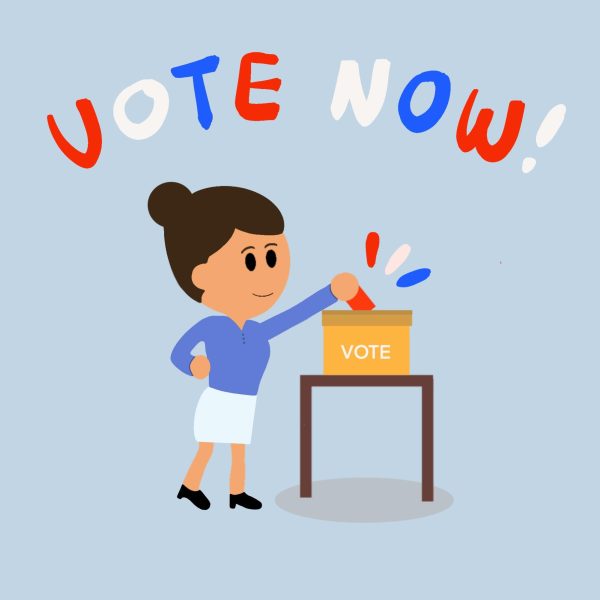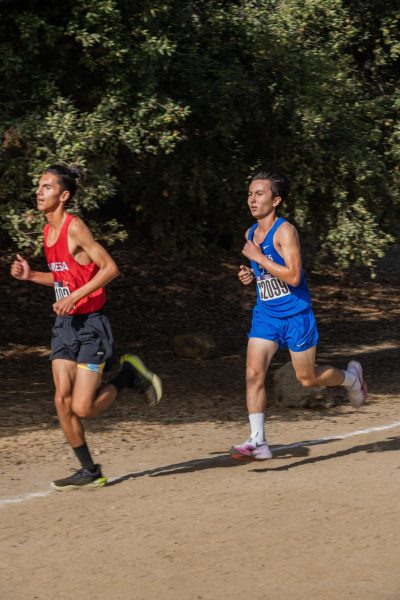Women’s Month Celebrations Empower Students to Spur Change
Pali’s recurring Women’s Month celebrations, held throughout the month of March, were filled with commemoration, engaging the school’s community to celebrate female influences on society.
National Women’s History Week was created by President Jimmy Carter in 1980 and rapidly became a staple of the American calendar, with communities celebrating women and their accomplishments one week during March. In 1987, Congress passed a law that identified March as “Women’s History Month,” extending the week-long commemoration to 31 days.
Pali’s Associated Student Body (ASB) spread awareness of Women’s History Month by hosting multiple activities to encourage and galvanize the student body to take part.
ASB kicked off their series of events on March 8 with a bake sale in the quad, recognizing International Women’s Day. They succeeded in raising $250, which was donated to the Alexandria House Shelter, a housing center in East Los Angeles that serves single women and women with children. The event was promoted with stickers, buttons and pink flyers posted on Schoology inviting students to stop by and enjoy baked goods. “The big idea behind these ASB initiatives is taking Women’s Month to a local level where students can get involved,” ASB representative Molly Cohen said.
“Seeing a bundle of students on March 8 celebrating Women’s Day was really empowering,” Cohen, a senior, added.
Additionally, students were invited to participate in an ASB-hosted activity in the quad where they wrote encouraging messages on sticky notes and posted them on a white board to acknowledge important women in their lives.
Local ASB-sponsored events helped raise awareness of “the meaning of Women’s Day and … the progress that has been made for women throughout history,” Cohen said. “Oftentimes, women especially don’t give themselves enough credit and are so hard on themselves so even taking an empowering sticker or writing a message about a woman that motivates them can make a meaningful contribution to recognizing Women’s History Month.”
The My Body My Choice club, founded this year, has been actively raising money for women’s rights initiatives through various efforts, including creating empowering posters and fostering women-based discussions during club meetings. By using the slogan “My Body My Choice,” the club expresses its support for the abortion rights movement, which aligns with its initiatives to represent Women’s Month.
Club President Ella Kraynak, a sophomore, explained the various activities they hosted at Pali in order to commemorate Women’s History Month.
A bake sale was held in the quad on March 2, with all proceeds going to Planned Parenthood.
The menstrual drive is another Pali initiative created to support Women’s History Month. Organized by Cohen in 2021, the menstrual drive became an annual tradition at Pali during Women’s Month, evolving into an integral part of the school’s celebration.
From March 6 to 23, bins were placed outside F104 and Gilbert Hall to gather tampons, pads, soaps and other hygiene products. On March 24 during seventh period, students had a chance to go to F104 and gain three hours of community service by assembling care packages with the donated items, which were then shipped to the Alexandria House Shelter.
“I started to get involved in the fight for menstrual equality around my sophomore year as I started learning about things like the pink tax or just the lack of accessibility for unhoused individuals,” Cohen said. “Obviously, those who menstruate don’t choose to, so the idea that some menstruators go without these products did not sit right with me.”
The Alexandria House Shelter offered a community in need of menstrual products.
“They told me that they never receive any menstrual donations because it doesn’t even cross people’s minds that these items are a necessity,” she said. “A lot of these shelters are severely understaffed, and they don’t have the funds to consistently buy these products.”
This quickly flourished into a menstrual drive, which demanded the attention of many students at Pali.
“I think the menstrual drive is a great idea,” sophomore Jasper Hoegh-Guldberg said. “I think it’s a great way to destigmatize periods and get the help of the Pali community in both an effective and easy way.”
All of these initiatives have a common goal of raising awareness and honoring the tradition of Women’s Month. Despite the steps Pali students and clubs have taken to spread awareness about Women’s History Month, students recognize that this is only the beginning.
“Of course, there’s more that can be done,” Cohen said. “There is always more that we can be doing. However, these local efforts that Pali took had a goal of making small local changes, and I think they did that.”
A poll was conducted at Pali during April regarding Women’s month. Out of 35 responses, 19 people were not aware of any of the activities that occurred at Pali and a dominant 28 people did not participate in these events. While generally, people knew when women’s month and/or day were, 13 people weren’t educated on this holiday’s time frame. 20 students compared to 11 believed that these events were not effective in promoting involvement in women’s month, with the other 3 people feeling either neutral or not sure. Furthermore, the responses concerning the purpose of these activities varied. Some said it was to promote school spirit and awareness, others believed they were made to educate students on women’s history. However, a general consensus was reached on whether these activities were effective or not. 26 out of the 35 responses wrote that the purpose of these activities were not achieved. Yet, the ones who did believe that they worked, defended the women’s day activities, saying that they had a great time listening to the women shoutouts on the announcements, participating in the menstrual drive, and taking part in school initiatives. Lastly, the question asking for recommendations to make women’s month more greatly celebrated stimulated several ideas that students believe will make a difference. Some believed that the initiatives were well-intentioned yet they were not promoted enough. Others stated that a segment in the yearly curriculum in English or History classes at Pali could be allotted to acknowledging and educating about women.

Ava Walker joined Tideline as a sophomore and is now serving as one of the News Editors. She is a senior at Pali and is extremely excited to further her...







